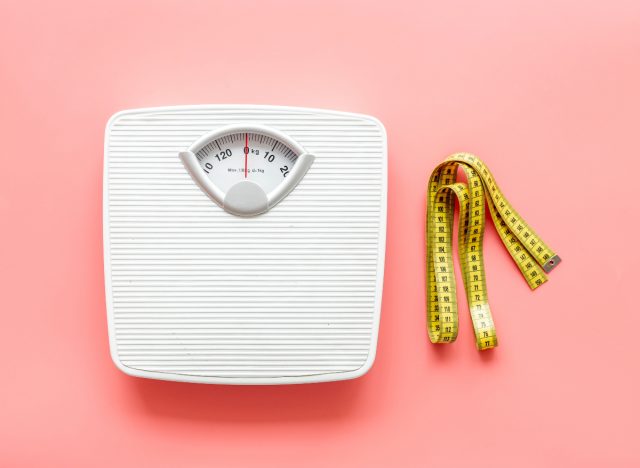Share this @internewscast.com
If you’ve spent any time searching online for weight loss info, you’ve likely come across conflicting views on the role carbohydrates (or carbs) play in weight loss. Some tout carbs for their health and weight loss benefits, while others swear them off their plates for good. So, if you’ve ever found yourself confused about how many carbs you need to eat to lose weight, you’re not alone. The truth is, carbs can both support and hinder your weight loss efforts — the key is striking the right balance in your carb intake.
To help us sift through the online noise, we chatted with Destini Moody, RDN, CSSD, LD, a registered dietitian and sports dietitian with Garage Gym Reviews, who weighs in on the carb-weight loss connection, discusses what type of carbs you should consume, and answers how many carbs you need to eat daily to shed pounds.
So whether you’re a high-carb fanatic or someone who avoids carbs like the plague (or somewhere in between), keep reading to find out just how many carbs you should realistically consume for both weight loss and good overall health. And when you’re done, don’t miss these 9 Simple Meal Prep Tips for Faster Weight Loss.
The carb-weight loss connection.

Carbs are often villainized as a primary culprit causing weight gain. However, they’re an essential part of a healthy, balanced diet. According to research, carbs are a significant fuel source for your body, helping optimize exercise performance, which leads to improved weight management. But not all carbs are created equal. Opt for healthy complex carbs from whole grains, legumes, fruits, and vegetables over refined carbs, such as baked goods, sugary treats, and white bread.
“The trick is knowing how to balance carbs in your meals with other macronutrients and choosing carb sources wisely to get all of the nutrition carbs have to offer while managing your calorie intake,” explains Moody.
How many carbs are enough?
There’s no one-size-fits-all approach to carb intake. The latest Dietary Guidelines for Americans recommends most healthy people get about 45 to 65 percent of their daily calories from carbohydrates. Just remember that everyone is unique. Experiment with your carb intake to find the sweet spot that fuels your body while helping you shed those extra pounds.
Moody tells us, “If you consume 2,000 calories daily, you should consume between 900 and 1,300 calories from healthy carbs. This amounts to approximately 225 to 325 grams of carbs per day. However, carb needs can vary depending on age, physical activity, weight goals, and health state.”
Read Related Also: 'I’m a nutrition expert – here are the vitamins and supplements you need this winter'
Quality over quantity.

Rather than fixating on a specific number of grams of carbs, focus on the quality of your carbs. Processed foods packed with added sugars and refined flours are a no-go. Studies show that these carbs can cause rapid blood sugar spikes and crashes, making weight loss an uphill battle.
“If you want to lose weight, choose complex carbs that are high in fiber, minimally processed, and don’t contain added sugars,” recommends Moody.
Examples of healthy carbs that are slower to digest and provide longer-lasting energy include:
- whole grains like oats, whole wheat, and brown rice
- legumes such as beans, lentils, and tofu
- low-glycemic index fruits like berries, apples, and oranges
Moody adds, “To stay on track with hunger control, focus on high-fiber, low-glycemic fruits when trying to lose weight. For better blood sugar control and appetite control, always choose fruits with a high glycemic index combined with a fat or protein source.”
Don’t overconsume carbs.
Whether it’s carbs, fats, or proteins, overeating any macronutrient can lead to weight gain. Research suggests that practicing portion control is an effective way to maintain a healthy weight. So, be mindful of portion sizes and listen to your body’s hunger cues.
It’s better to have a well-balanced, moderate portion of carbs than to cut them out completely. Total exclusion can lead to nutrient imbalances and intense cravings, making it challenging to stick to a sustainable weight loss plan.
“Too much of any one food can be harmful in various ways, which is why dietitians promote balanced diets that include all food groups in moderation,” says Moody. “The only time you can eat too many carbs is if your intake causes a displacement of other important foods in your diet, such as lean proteins and healthy fats.”










